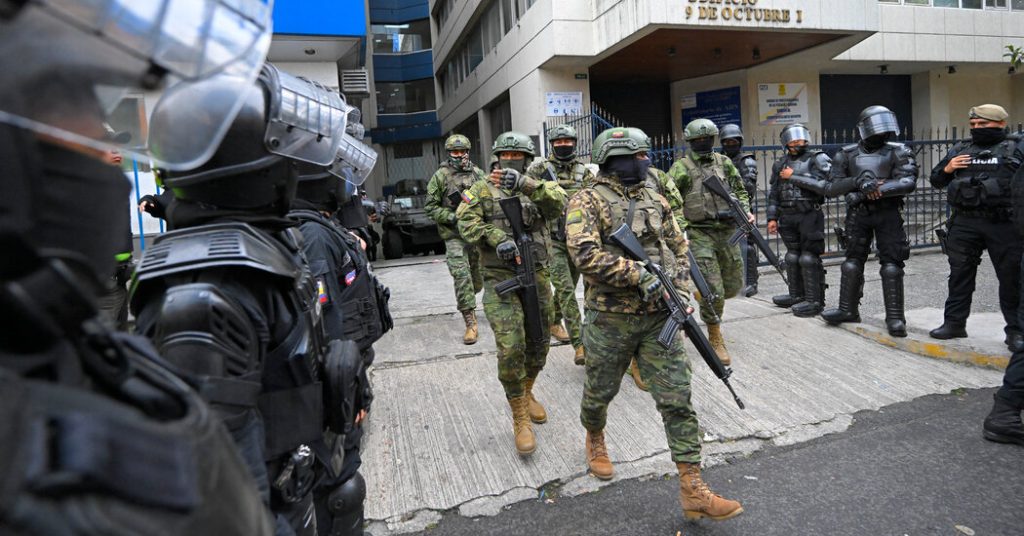Ecuador’s decision to send police officers to arrest politician Jorge Glas, who had taken refuge in the Mexican Embassy in Quito, resulted in a diplomatic crisis between Ecuador and Mexico. The arrest was seen as a move by President Daniel Noboa to boost his popularity ahead of a referendum and his re-election chances next year. Mr. Glas, a former vice president of Ecuador, had been living in the Mexican Embassy since December after being sentenced to prison for corruption. Mexico granted him asylum, leading to the police intervention.
President Noboa, who took office after his predecessor faced impeachment, has been struggling with flagging approval ratings amid rising violence in Ecuador. To address these issues, he has taken a tough stance on crime and corruption, tackling gangs and addressing government complicity with criminal groups. The arrest at the Mexican Embassy was seen as a way for Noboa to show he is taking a strong stand against impunity and restoring law and order in the country.
Jorge Glas, who served as vice president during Rafael Correa’s presidency, was forced from office in 2017 and later sentenced to prison for accepting bribes. Released in 2022, he sought asylum in Mexico, creating tension between Ecuador and Mexico. President Noboa’s tough stance on crime and corruption is seen as an attempt to shift the negative perception of his leadership and improve his chances for re-election next year.
The arrest of Jorge Glas at the Mexican Embassy received mixed reactions from the people of Ecuador. While some supported the action as a way to tackle corruption and criminality, others felt it was a violation of international law and diplomatic conventions. The diplomatic rift between Ecuador and Mexico, as well as the criticism from other countries in the region, may have negative consequences for Ecuador’s international relations.
The arrest of Jorge Glas comes at a time when Ecuador is grappling with escalating violence, particularly related to gangs and drug trafficking. President Noboa declared an internal conflict in response to gang violence in Guayaquil, deploying the military to address the security crisis. The upcoming referendum aims to increase security measures and strengthen law enforcement to combat the rising crime rates in Ecuador.
While it remains to be seen how the arrest of Jorge Glas will impact President Noboa’s re-election prospects, the move has raised concerns about the diplomatic implications and potential fallout on relationships with other countries in the region. The United States has condemned the violation of the Vienna Convention on Diplomatic Relations and called for a resolution to the differences between Ecuador and Mexico. Overall, the incident reflects the complex political dynamics at play in Ecuador as President Noboa seeks to address issues of crime and corruption while navigating diplomatic challenges.


